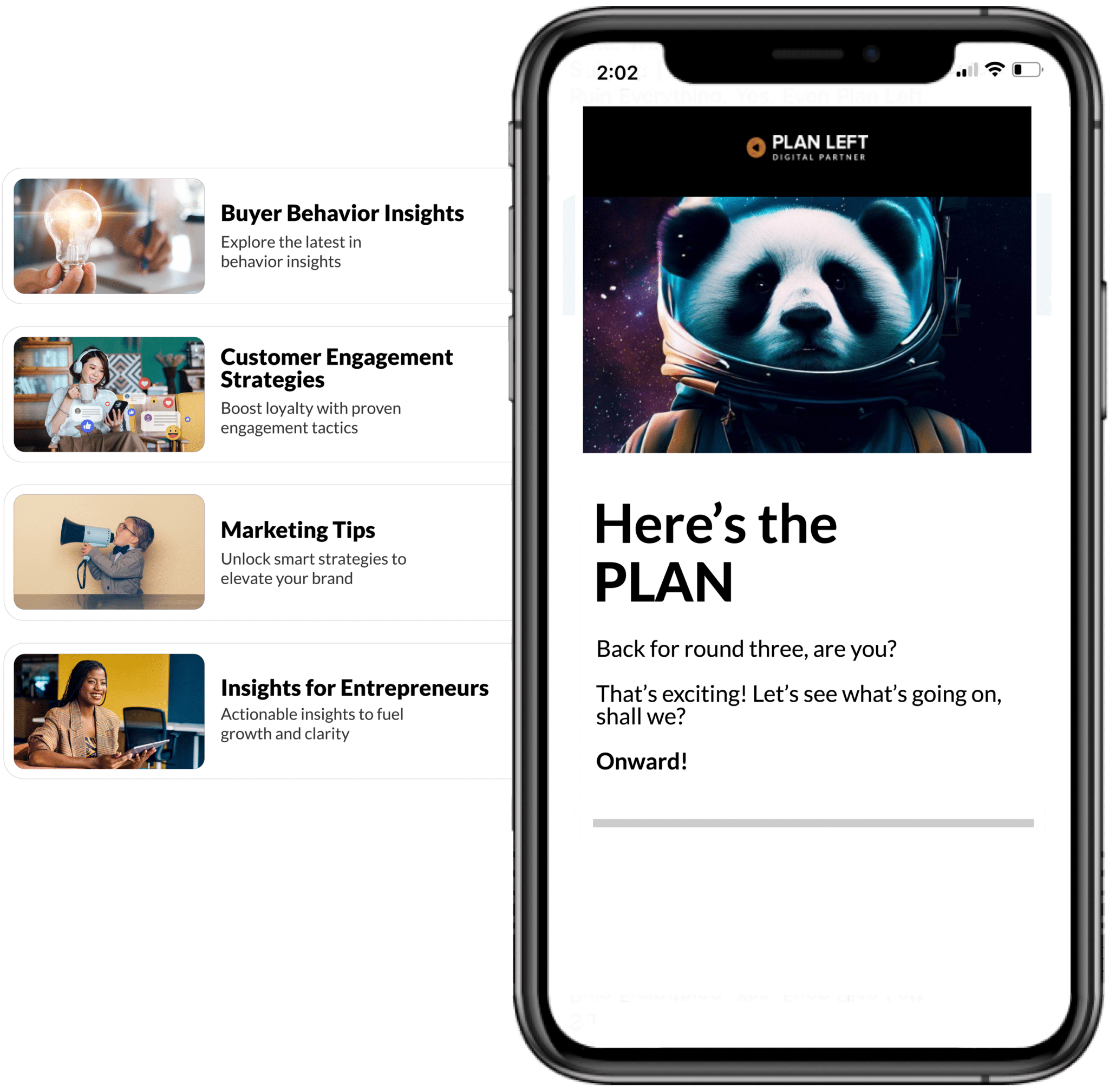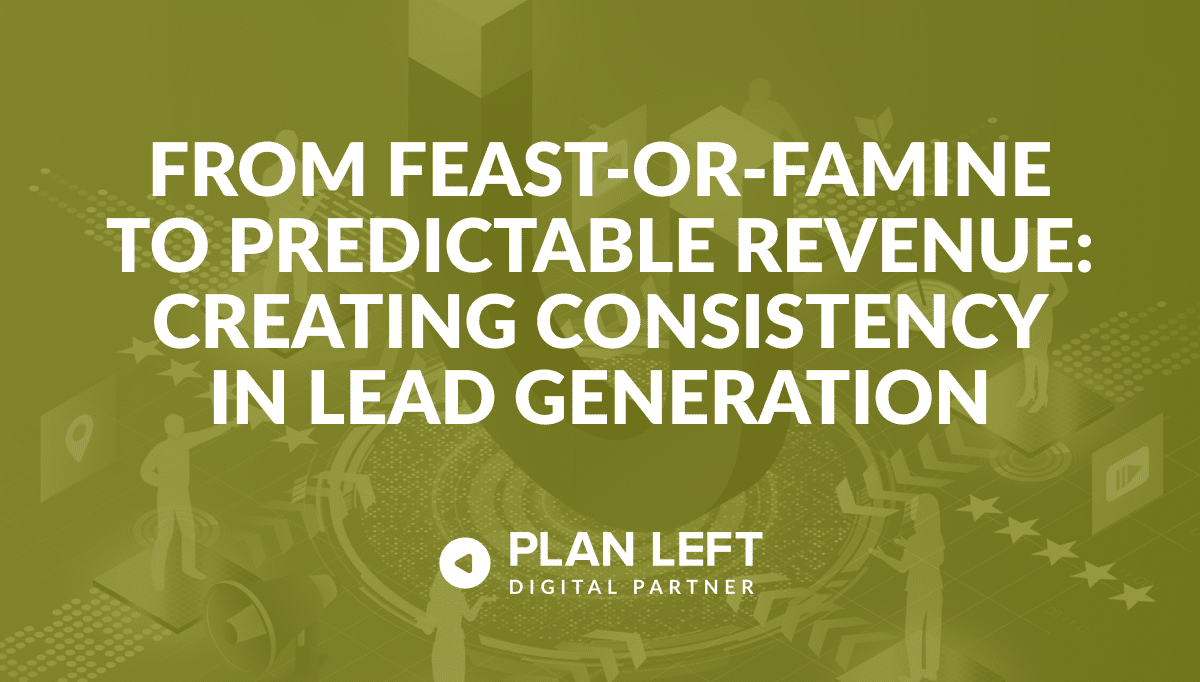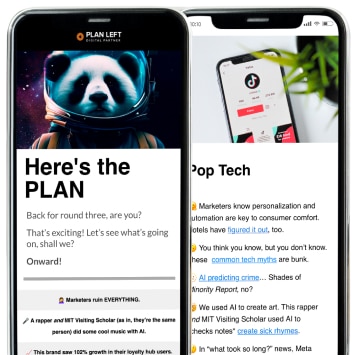
Red Flags When Hiring Marketing Help
Hiring the wrong marketing partner wastes money, delays growth, and creates problems that take months to uncover and longer to fix. Yet most business owners make these decisions with less scrutiny than they’d apply to hiring an employee or choosing an accounting firm.
The warning signs are usually visible during the courtship phase. Agencies promise specific results without understanding your business. They can’t explain their process clearly. They’re more focused on their awards than your outcomes. They resist being measured by business metrics that actually matter. But founders often ignore these signals because they’re desperate for help, charmed by slick presentations, or simply don’t know what questions to ask.
Most bad marketing relationships could be avoided if business owners knew what to look for upfront. Recognizing warning signs protects your investment and business growth. Trust your instincts: if something feels off during the sales process, it won’t improve after you’ve signed the contract. The best marketing partners welcome tough questions, stay transparent about what they don’t know, provide realistic timelines and expectations, and prioritize understanding your business before proposing solutions.
Why Good Hiring Decisions Start with Recognizing Bad Fits
The obvious cost is wasted marketing spend, but the real damage runs deeper. You lose months of potential growth while the wrong partner experiments with your budget. Your team becomes frustrated managing a difficult relationship. You develop skepticism about marketing effectiveness that makes you gun-shy about future investments. And when you finally pull the plug, you’re starting from scratch while competitors who chose better partners have been gaining ground.
Ignoring red flags during evaluation means accepting problems you spotted early but convinced yourself weren’t deal-breakers. That nagging feeling about evasive answers to pricing questions becomes a billing dispute six months in. The concern about generic case studies becomes a cookie-cutter strategy that doesn’t fit your business. The slick salesperson who barely asked about your goals becomes an account manager who doesn’t understand your industry. These problems were preventable through better evaluation upfront.
Critical Red Flags During the Marketing Agency Sales Process
Red Flag 1: Guaranteeing Specific Results Before Understanding Your Business
Any marketing partner guaranteeing specific outcomes in initial conversations is either lying or reckless. Legitimate marketing requires understanding your business model, competitive position, current capabilities, market conditions, and internal resources before making performance projections. Guarantees before discovery signal that the partner prioritizes closing the sale over delivering actual results.
Beware of promises like “we’ll triple your leads in 90 days” or “guaranteed first page Google rankings” made before they’ve reviewed your analytics, talked to your sales team, or understood your customer journey.
Strong partners discuss realistic ranges based on industry benchmarks and similar situations, acknowledge variables outside their control, and explain how they’ll work toward goals rather than guaranteeing them blindly.
Red Flag 2: Unable to Explain Their Process Clearly
If you can’t understand what the partner will actually do or how their process works, that’s a major warning sign. Marketing shouldn’t be mysterious. While execution has complexity, the overall approach should make sense to someone without marketing expertise. Partners who hide behind jargon, speak vaguely about “proprietary methods,” or can’t walk through their process step-by-step either don’t have a real process or don’t want you examining it closely.
Ask specific questions: How will you develop strategy? What does the first 30 days look like? How do you make decisions about budget allocation? What tools will you use and why?
Strong partners answer these questions clearly and concretely. They explain their thinking in ways you can understand and evaluate. If you leave conversations more confused than when you started, that’s a red flag about communication and transparency that won’t improve later.
Red Flag 3: More Focused on Their Story Than Yours
Partners who spend most of the conversation talking about themselves rather than asking about your business have their priorities backward. Initial meetings should involve extensive discovery about your goals, challenges, market position, past marketing efforts, and what success looks like. Partners focused on showcasing their awards, name-dropping impressive clients, or walking through every service they offer without first understanding your situation aren’t listening.
Pay attention to the ratio of questions they ask versus statements they make about themselves.
Strong partners demonstrate curiosity about your business and ask thoughtful, specific questions that show they’re thinking about your unique situation. They spend more time understanding your context than promoting their credentials. If you’re 30 minutes into a conversation and they haven’t asked substantive questions about your business, that tells you everything about how the relationship will function.
Red Flag 4: Pushing Toward a Decision Without Adequate Discovery
Pressure to sign quickly without thorough discovery suggests the partner values closing deals over delivering results. Legitimate marketing partnerships require time to understand your business, develop appropriate strategy, and ensure mutual fit. Partners who skip or rush this process are either desperate for revenue or plan to apply generic solutions regardless of your specific needs.
Watch for tactics like “this price is only available if you sign this week” or pushing for commitments before you’ve received a detailed proposal. Strong partners take time to do discovery properly, provide comprehensive proposals you can evaluate carefully, and give you space to make informed decisions. They’re confident enough in their value to let you conduct thorough evaluation rather than manufacturing urgency to force premature commitments.
Red Flag 5: Vague or Evasive About Pricing and Costs
Transparency about costs should be straightforward. If getting clear pricing information feels like pulling teeth, that signals problems with transparency that will extend to reporting, results, and the entire relationship. Partners who are evasive about pricing, insist you go through multiple meetings before discussing costs, or make pricing unnecessarily complicated either have something to hide or use confusion as a sales tactic.
You should be able to understand what you’re paying for, what’s included versus what costs extra, how billing works, and what happens if you need to adjust scope or exit the relationship. Partners who provide clear, detailed pricing breakdowns and answer cost questions directly demonstrate the transparency you want in all aspects of the relationship. If they can’t be straightforward about money upfront, they won’t be later either.
Red Flags About Capabilities and Experience
Red Flag 6: Limited or Irrelevant Industry Experience
While partners don’t need to have worked with direct competitors, they should understand your industry dynamics, typical customer journey, and business model challenges. If they ask basic questions about your industry that Google could answer, or seem unfamiliar with standard practices in your market, they’ll be learning on your dime rather than bringing expertise that accelerates results.
Ask about their experience with businesses similar to yours in size, model, or market. Listen for depth of understanding versus surface-level familiarity. Strong partners might not have worked in your exact niche but demonstrate they’ve solved similar challenges for comparable businesses. They speak knowledgeably about your customer type, competitive landscape, or business model without you having to educate them on fundamentals.
Red Flag 7: Unable to Provide Client References
Any established marketing partner should have satisfied clients willing to speak with prospects. Reluctance to provide references or only offering carefully curated testimonials without actual contact information signals that their client relationships aren’t as strong as they claim. You should be able to speak with references who will give honest perspectives on what working with this partner is actually like.
Don’t accept excuses about client confidentiality preventing references. While some details might be proprietary, clients can still speak generally about their experience, communication quality, how the partner handled challenges, and whether they’d recommend them. Ask for references from clients in situations similar to yours, and actually call them. The conversation will reveal more than any case study or testimonial page.
Red Flag 8: Case Studies That Don’t Show Real Metrics
Vague case studies full of adjectives but lacking concrete metrics suggest the partner either didn’t deliver measurable results or can’t track them properly. “Significantly increased brand awareness” and “improved engagement” sound impressive but tell you nothing about actual business impact. Strong partners showcase results tied to business outcomes: lead volume, conversion rates, revenue growth, customer acquisition costs.
When reviewing case studies, look for specific numbers, clear timeframes, and context that helps you understand what was actually accomplished. Be skeptical of cherry-picked wins without broader context. Ask about case studies matching your situation and what results you might reasonably expect. Partners confident in their results provide transparent, detailed case studies that withstand scrutiny.
Green Flags: What Good Marketing Partners Do Differently
Signs of a Trustworthy Marketing Partner
Strong marketing partners demonstrate certain qualities consistently during evaluation. They ask thorough questions about your business before proposing solutions. They’re transparent about their process, pricing, and what you should realistically expect. They provide detailed proposals that demonstrate understanding of your situation rather than generic templates. They welcome your questions and answer them directly without defensiveness.
Good partners also acknowledge what they don’t know and explain how they’ll address gaps. They discuss both what they’ll do and what they’ll need from you for success. They’re willing to be measured by business metrics that matter to you, not just marketing activity metrics. They have long-term client relationships that demonstrate their ability to deliver consistent value. And they treat the evaluation process as mutual—they’re assessing fit just as you are, which shows they’re selective about who they work with.
Questions That Separate Great Partners from Mediocre Ones
Ask these questions during evaluation and pay attention not just to answers but to how partners respond.
- Can you walk me through exactly what the first 90 days would look like?
- What will you need from us to be successful?
- How do you handle situations where results aren’t meeting expectations?
- What metrics will you track and how do they connect to our business goals?
- Can you explain why you’d recommend certain strategies over others for our situation?
Also ask about their team:
- Who will actually be doing the work?
- What’s their experience level?
- How do you handle staff turnover?
- What’s your typical client retention rate and why do clients leave?
These questions reveal whether the experienced person you’re meeting with will be hands-on or if you’ll be serviced by junior staff, whether they have stable teams or high turnover, and whether clients typically stay long-term or churn quickly.
The best marketing relationships start with thorough evaluation that identifies warning signs before they become expensive problems. Take time during the selection process to ask hard questions, trust your instincts when something feels off, and remember that the right partner will welcome your scrutiny rather than deflecting it.
The goal isn’t finding a perfect partner—those don’t exist. The goal is finding a partner whose strengths match your needs, whose values align with yours, and who demonstrates through the evaluation process that they’ll be transparent, capable, and committed to your success.
Explore Latest Posts
Red Flags When Hiring Marketing Help Hiring the wrong marketing partner wastes money, delays growth, and creates problems that take ... read more
March 4, 2026
From Feast-or-Famine to Predictable Revenue: Creating Consistency in Lead Generation The revenue roller coaster is exhausting. Some months your pipeline ... read more
February 25, 2026
Marketing Automation Tools That Actually Save Time (Not Create More Work) Your marketing to-do list keeps growing faster than you ... read more
February 18, 2026
Essential Strategies for Entrepreneurs
Get Actionable Business Insights & Marketing Tips
Our newsletter delivers real-world strategies from entrepreneurs who’ve been exactly where you are.
Sign up now for:
- Actionable growth strategies that work
- Insider tactics for attracting top talent
- Real-world case studies from successful founders
- Emerging tech trends that drive innovation
- Pragmatic marketing approaches for visionary leaders



